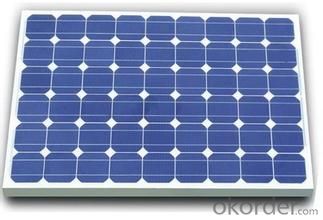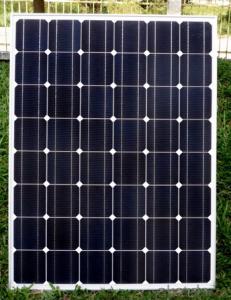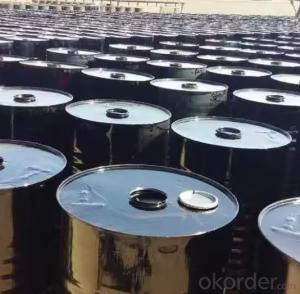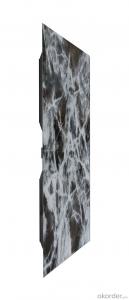25KW Solar Home Solution with 25 years Qualtiy Assurance
- Loading Port:
- Shanghai
- Payment Terms:
- TT OR LC
- Min Order Qty:
- 1 pc
- Supply Capability:
- 100 pc/month
OKorder Service Pledge
OKorder Financial Service
You Might Also Like
Item specifice
25KW Solar Home Solution with 25 years Qualtiy Assurance
Production description
PV systems range from small, rooftop-mounted orbuilding-integrated systems with capacities from a few to several tens of kilowatts, to large utility-scale power stations of hundreds of megawatts. Nowadays, most PV systems are grid-connected, while off-grid or stand-alone systems only account for a small portion of the market.

Feature
1.High conversion efficiencies resulting in superior power output performance.
2.Outstanding power output even in low light or high temperature conditions
3.Optimized design for ease of soldering and lamination
4.Long-term stability,reliability and performance
5.Low breakage rate
6.Color uniformaity
Physical characteristic
1. Rigorous quality control meets the highest international standards.
2. High-transmissivity low-iron tempered glass, strong aluminium frame.
3. Using UV-resistant silicon.
4. IS09001/14001/CE/TUV/UL
- Q:Can solar energy systems be used for air conditioning?
- Yes, solar energy systems can be used for air conditioning through the use of solar-powered air conditioning units or by using solar energy to power traditional air conditioning systems.
- Q:Are there any risks of electrical grounding issues with solar energy systems?
- Yes, there are some risks of electrical grounding issues with solar energy systems. One of the main risks is the potential for electric shock. If the grounding system in a solar energy system is not properly installed or maintained, it can lead to a build-up of electrical current in the system. This can result in a person coming into contact with a live electrical component and experiencing an electric shock. Another risk is the potential for fire. If the grounding system is not properly installed, it can cause electrical arcing, which can lead to a fire. This is particularly dangerous in solar energy systems as they are typically installed on rooftops, where a fire can quickly spread to the rest of the building. Additionally, a faulty grounding system can also lead to damage to the solar energy system itself. Without proper grounding, electrical surges and fluctuations can occur, which can damage sensitive components of the system, such as inverters or batteries. To mitigate these risks, it is crucial to ensure that the grounding system of a solar energy system is properly installed and regularly inspected and maintained. This includes using proper grounding equipment, such as grounding rods or conductors, and ensuring that all connections are secure and free from corrosion. Regular testing of the grounding system should also be conducted to ensure its effectiveness. It is recommended to hire a qualified professional to install and maintain the grounding system to minimize the risks associated with electrical grounding issues in solar energy systems.
- Q:Can solar energy systems be used for transportation?
- Yes, solar energy systems can be used for transportation. Solar-powered vehicles, such as solar cars, solar boats, and solar planes, have been developed and successfully used for transportation purposes. These vehicles harness the energy from the sun through solar panels, converting it into electricity to power their propulsion systems. While solar energy may have limitations in terms of efficiency and range, advancements in technology are continuously improving the viability of solar-powered transportation.
- Q:Can a solar energy system be expanded in the future?
- Yes, a solar energy system can be expanded in the future. Solar energy systems are designed to be flexible and scalable, enabling homeowners or businesses to add more solar panels or increase their capacity as their energy needs grow. This can be done by installing additional panels, expanding the current system, or incorporating new technologies. Additionally, advancements in solar technology are continuously being made, making it easier to integrate and expand solar energy systems in the future.
- Q:What is the average payback period for a solar energy system?
- The average payback period for a solar energy system varies depending on various factors such as the initial cost of the system, location, energy usage, available incentives, and financing options. However, on average, it typically ranges from 5 to 10 years.
- Q:Can solar energy systems be used in mining operations?
- Yes, solar energy systems can be used in mining operations. By installing solar panels and utilizing solar power, mining companies can reduce their dependence on fossil fuels and reduce greenhouse gas emissions. Solar energy can be used for various mining activities such as powering machinery, lighting, and ventilation systems, thereby providing a sustainable and cost-effective alternative to traditional energy sources.
- Q:Is it possible to finance a solar energy system?
- Yes, it is possible to finance a solar energy system. There are various financing options available, including loans, leases, and power purchase agreements (PPAs), which allow individuals and businesses to install solar panels without paying the full upfront cost. These financing methods make solar energy more affordable and accessible to a wider range of people and organizations.
- Q:Can solar energy systems be used in powering desalination plants?
- Yes, solar energy systems can be used to power desalination plants. Solar-powered desalination systems use solar panels to convert sunlight into electricity, which is then used to power the desalination process. This sustainable approach not only reduces reliance on fossil fuels but also helps address the water scarcity issue by producing freshwater from seawater in an environmentally friendly manner.
- Q:Can solar energy systems be used in powering community centers or social organizations?
- Yes, solar energy systems can certainly be used to power community centers or social organizations. Solar panels can be installed on the rooftops of these buildings to harness sunlight and convert it into electricity. This renewable energy source can help reduce electricity costs and dependence on traditional energy sources, making it an environmentally friendly and sustainable option for powering community centers and social organizations. Additionally, solar energy systems can also contribute to raising awareness about renewable energy and inspire others in the community to adopt clean energy practices.
- Q:How does a solar panel convert sunlight into electricity?
- A solar panel converts sunlight into electricity through the photovoltaic effect. When sunlight hits the solar panel's surface, it excites the electrons in the panel's semiconductor material, creating an electric current. This current is then captured and converted into usable electricity for powering various devices or stored in batteries for later use.
1. Manufacturer Overview |
|
|---|---|
| Location | |
| Year Established | |
| Annual Output Value | |
| Main Markets | |
| Company Certifications | |
2. Manufacturer Certificates |
|
|---|---|
| a) Certification Name | |
| Range | |
| Reference | |
| Validity Period | |
3. Manufacturer Capability |
|
|---|---|
| a)Trade Capacity | |
| Nearest Port | |
| Export Percentage | |
| No.of Employees in Trade Department | |
| Language Spoken: | |
| b)Factory Information | |
| Factory Size: | |
| No. of Production Lines | |
| Contract Manufacturing | |
| Product Price Range | |
Send your message to us
25KW Solar Home Solution with 25 years Qualtiy Assurance
- Loading Port:
- Shanghai
- Payment Terms:
- TT OR LC
- Min Order Qty:
- 1 pc
- Supply Capability:
- 100 pc/month
OKorder Service Pledge
OKorder Financial Service
Similar products
New products
Hot products
Related keywords




























